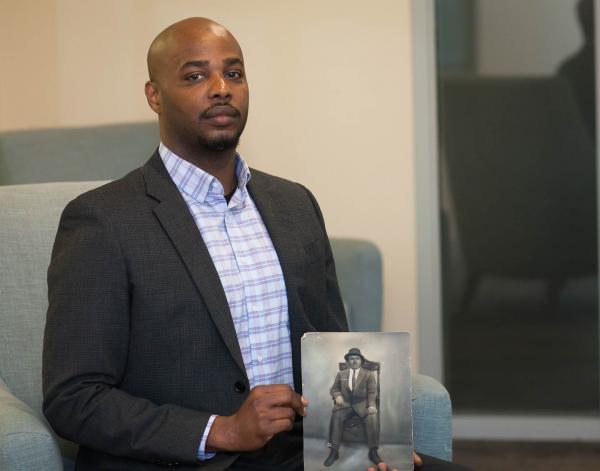New Englanders Bring Targeted Approach To Reparations Movement

Evan Lewis with a picture of his great-grandfather Lent Shaw. (Joyce Skowyra/NEPM)
People have been making the case for reparations for Black Americans for decades, and there are signs of forward movement.
President Joe Biden has expressed support for a federal bill that would study the issue, and the new COVID-19 relief legislation includes several billion dollars to help Black farmers.
In New England, some groups are hoping to build on this momentum — with targeted efforts.
‘I wanted to reclaim some of what we lost’
Lent Shaw was a successful Black farmer in Colbert, Georgia, in 1936 when he was accused of assaulting a white woman and put in jail. A lynch mob later dragged him out of jail, and — while his family huddled at home — tied to him a tree and killed him.
Shortly afterwards, someone took a photo of Shaw’s bullet-ridden body, surrounded by more than a dozen white men.
“In order for a lynching like this to occur and in order for there to be no steps toward justice in the immediate aftermath, the entire community had to play a part in this,” said Evan Lewis, the great-grandson of Shaw.
Read the rest of the story at NEPM’s website.
